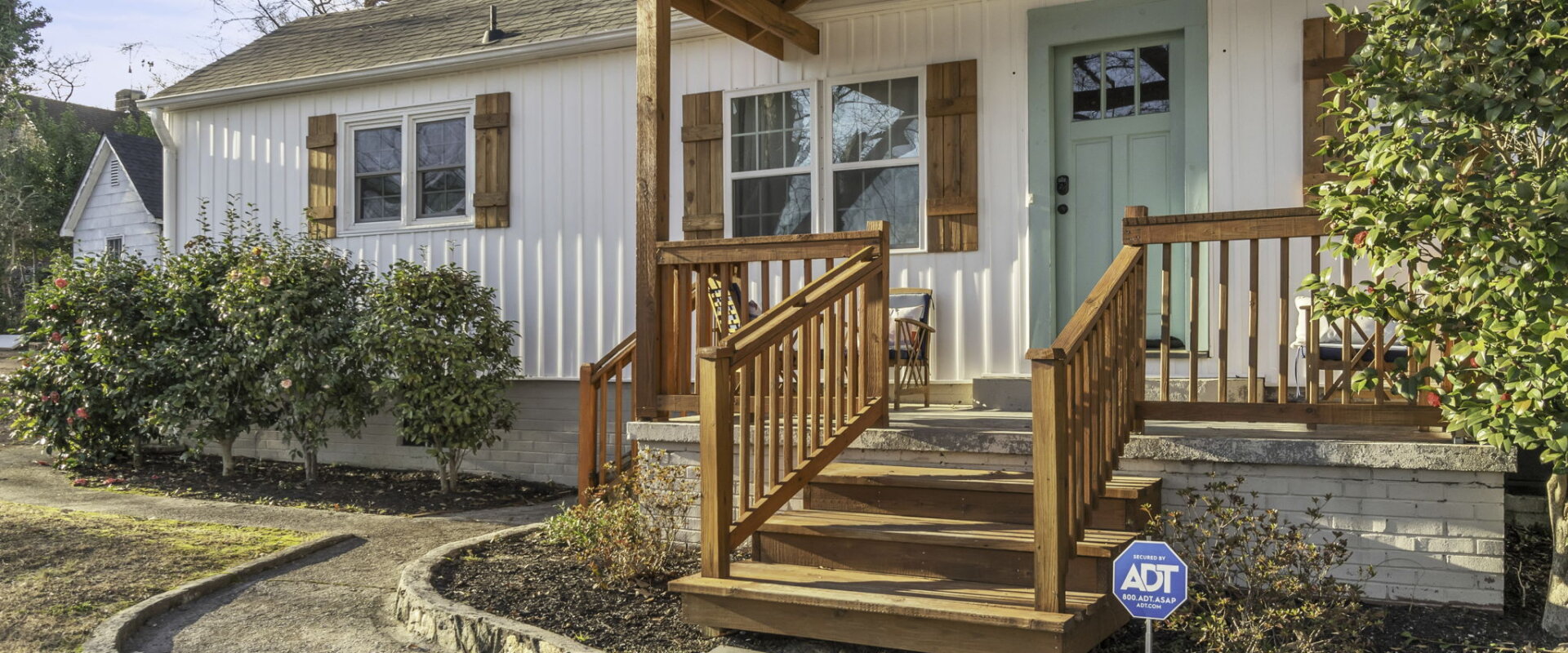Selling a house during a divorce can be a challenging and emotionally charged process, especially in Spartanburg, SC. Navigating the complexities of both the real estate market and the legal system requires careful planning and clear communication. Whether you’re facing disputes over property division or simply trying to move forward, understanding the steps involved can make a significant difference. This guide is designed to provide you with practical advice and insights on how to sell your house during a divorce, ensuring a smoother transition for all parties involved. From legal considerations to financial implications, we’ll cover everything you need to know to make informed decisions and achieve the best possible outcome.
Can You Divorce Without Selling the House?
When facing a divorce, you have options regarding what to do with your house. One option is to keep the house, and the other is to sell it and split the proceeds equally. The first crucial step is to inform your lawyers and the Court of the date you acquired the house. This information is essential as it helps determine whether the house will be considered marital property. If deemed marital property, it may need to be sold, and the assets divided equitably. If not, it might remain with one party. Understanding this distinction is key to navigating the division of assets during a divorce.
If the Court determines that the property is “separate property”—meaning it was purchased before the marriage, gifted or inherited by you individually, or bought with separate assets—then, in both community and equitable distribution states, your spouse has no rights to this property. However, there may be exceptions. For instance, if the property was significantly improved during the marriage, thereby increasing its overall value, it might be subject to division. Consulting with a lawyer is crucial to determine whether your property is considered separate or a marital asset, ensuring your interests are protected during the divorce proceedings.
A court will look at several factors to decide who gets the house, including:

The value of the property.

The financial circumstances of each partner.

The employability of each partner.

Both physical and monetary contributions to the marital home.

The age and physical and mental health of each partner.

The amount of time each partner will have custody of the children.
Who Gets The House in A Divorce?
During a divorce, it’s State law that will govern the division of assets. These laws play a heavy role in how your marital assets are divided. Most states follow the law of equitable distribution. In these cases, during a divorce a judge will divide your property in a way that the Court considers fair. This doesn’t necessarily mean evenly or equally but can be based on a number of factors, including individual contributions to the household (such as child rearing).
There are nine states with community property laws. They are: Arizona, California, Idaho, Louisiana, Nevada, New Mexico, Texas, Washington, and Wisconsin. Alaska has community property laws as well, but only if you opt in to this method. In community property states, all assets obtained during the marriage (i.e. marital property) are divided 50/50 with only a few exceptions.
There are a few options both you and your partner and/or the Courts might choose when it comes to selling (or not selling) your marital home. These include:
One of the spouses buys out the other legal interest and keeps the home
For married homeowners living in a community property state, all assets, including your house, are typically split equally between you and your spouse. However, this doesn’t necessarily mean you must sell your house. You have the option to negotiate with your spouse in Court to buy out their legal interest in the house, allowing you to keep it. To achieve this, you must ensure that you can assume full ownership and be the sole person on the title within the timeframe specified by the Court after the divorce decree is finalized. This approach allows you to retain the home while providing your spouse with fair compensation for their share.
One spouse keeps use and occupancy of the home for a specified period; typically when the youngest child turns eighteen, then the house can be sold.
In many states, a parent with custody of minors may be allowed to use the house until the child reaches the age of eighteen. Depending on the Court’s decision, the spouse granted occupancy may or may not be responsible for paying the mortgage, bills, insurance, and other expenses. The house would remain in their possession until all children reach the age of eighteen. At that point, the house would need to be sold, and the assets divided between the spouses. This arrangement ensures stability for the children while addressing the financial and property division aspects of the divorce.
Co-own the home
Divorce doesn’t have to be an emotional and monetary war. The ability to co-own a property might be the best situation for the family’s welfare, whether together or separate. If you have children and want to keep them in the same house, you could both stay on the mortgage to create as little disruption as possible. An example of this would be a wife and husband who have three children. The husband works outside of the home and is the sole provider of money for the couple, but the wife is the main care provider for their children. With her status as homemaker, she may not have the funds, job history, or ability to buy out her husband’s percentage in the property.
There are some benefits of this situation, including stability for the family, but it would require trust by the departing spouse that their previous partner will be able to make their payments on time. Otherwise, both partners would take a ding on their credit record.
The house is sold immediately and any equity is split up
In some ways, selling the house can be the simplest and most straightforward solution during a divorce. The house is listed on the market at an agreed-upon price, and once it’s sold, the assets are divided either 50/50 or as designated by the Court. Depending on the market in your area, this could be a quick process or a slow one. If the local housing market is sluggish, the house is in poor repair, or there are liens against the title, a traditional home sale might not be feasible. In such cases, selling the property directly to a homebuyer or investor could be a faster and easier way to complete the sale, allowing both parties to move on with their lives more quickly.
Selling Your House During A Divorce?
Contact Us For Your Cash Offer Today!
Steps to Sell a Home During Divorce
1. Hire A Divorce Specialist Real Estate Agent
Before you put the house up on the market, your first step is determining who gets what either through lawyers or the Court. Divorce can be an extremely turbulent and emotional time for both partners. Let professional experts with experience in selling real estate during a divorce guide you through this process.
2. Agree On Home Sale Specifics
You and your partner will need to decide how you would like to sell the house. Would you prefer a fast sale so that you can split the assets and move on with your life, or is it worth it to you to spend a few more months fixing up the property to make it “market ready” so that it can sell for the most money possible in the current housing market? If you can’t come to a decision through your lawyers, the Court may need to become involved.
If you decide to spend the money on any necessary repairs and upgrades, you’ll want to come to an agreement on how to split those expenses, as well as how that investment may impact the final split of the profits. Before you spend one more dime, make sure to finalize these agreements with a lawyer so that you’re not left high and dry at close.
But expenses and profits are just the tip of the iceberg. How will the house be dealt with during a listing? Whose agent will you use? What price point should it be set at? Will it be empty or will you or your spouse live in it until the property is sold? Who is responsible for the mortgage and bills and, if no one is living in the house, who is the one who will make sure that it’s ready to be shown during open houses and daily showings? If possible, let your lawyers hash this out before taking it to court. This can save you a lot of time and help keep any profits from the home sale being eaten up by the price of paying a lawyer to represent you in court.
3. Know What to Expect in Order to Close the Sale
There’s one more step where you and your ex-partner will need to button down your emotions to work together so that you can both make a profit – reviewing offers from potential buyers. If only one or two offers filter in, then this might be an easy decision, but in places where the housing market is hot and you get multiple different offers there might be a lot of back and forth using your lawyers and real estate agent about which offer is the right one for your situation. To help with this, try to agree on a strategy before putting up the house for sale. Whether you decide to take the first offer that comes in with no contingencies or you would prefer to choose the offer that will net you both the most profit at close, you must come to a decision together before you can sell.
4. Divide the Proceeds
It’s the final step, and hopefully the simplest! Whether the Courts or your lawyers helped you settle your divorce, you should already understand how the proceeds of the house sale will be divided. If there are any liens or obligations on the house, the escrow company will pay them off before distributing the money so that you can move on with your life.
OR
5. Sell Your House AS-IS to A Cash Buyer
Are you stuck in a situation where you and your ex-partner can’t (or don’t want to) speak? Are you ready to be out of the marriage and on to the next phase of your life? Is the stress from the divorce eating away at you, and a fast and straightforward sale of your shared marital property seems like the best option for everyone? Selling your property to a direct cash home buyer or investor might be the right option for you!
Investors and direct home buyers pay cash for properties, no matter what the condition or the owners’ financial (and marital) situation. They specialize in fast closings so that property owners can get out from under a property faster than with a traditional home sale. They also purchase houses and properties as-is, meaning that even if the house needs upgrades or major repairs, they still are willing to pay cash for it and close as quickly as possible. For two spouses stuck in a painful and expensive divorce, this might be the best option for the family. Not only are they able to sell the house for a fair cash amount, but they’re able to close quickly and without having to negotiate terms through lawyers and a shared real estate agent.
Selling Your House During A Divorce? Contact Us For Your Cash Offer Today!
Dax Properties | South Carolina is a local house buying company that’s built their business by buying houses for cash, no matter what the condition or the homeowners’ financial situation. We promise competitive cash offers without the hassle of dealing with real estate agents, lawyers, and more. If a direct home sale sounds like the best option for you, let’s chat! Call us day or night at +1 864-256-0917 . We have a reputation for buying houses with less stress and less fees.
If you own a property that you need to sell fast due to divorce, we have a solution. Contact us today and get a competitive cash offer for that house or rental property. We buy homes, no matter what your individual financial situation or the property’s condition. Even if the house has been neglected for years or suffered damage in the last storm, once you accept our fair cash offer our team of experts will handle all of those expensive repairs and upgrades so you don’t have to! We make selling a house during a divorce as hassle-free as possible.

